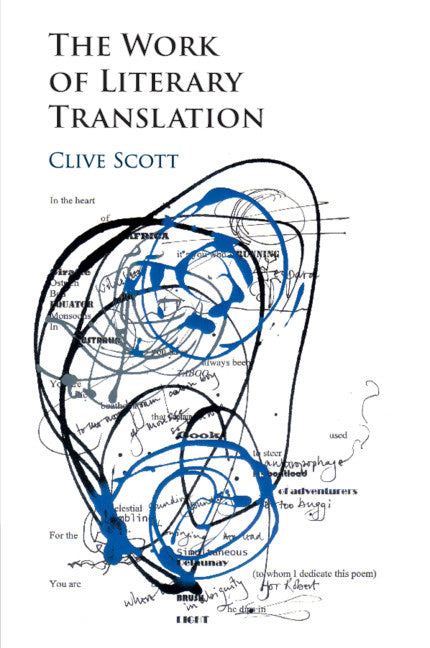Freshly Printed - allow 8 days lead
Couldn't load pickup availability
The Work of Literary Translation
Explores a literary translation dedicated more to the reader's perception and experience of text than to textual interpretation.
Clive Scott (Author)
9781108445818, Cambridge University Press
Paperback / softback, published 25 June 2020
297 pages, 15 b/w illus.
15 x 23 x 2 cm, 0.44 kg
'… this work is a stimulating and thought-provoking exploration of the open-ended potential of literary translation. Fascinating reading for practitioners, scholars and - perhaps with a dictionary to hand - the lay reader.' Forum for Modern Language Studies
Offering an original reconceptualization of literary translation, Clive Scott argues against traditional approaches to the theory and practice of translation. Instead he suggests that translation should attend more to the phenomenology of reading, triggering creative textual thinking in the responsive reader rather than testing the hermeneutic skills of the professional translator. In this new guise, translation enlists the reader as an active participant in the constant re-fashioning of the text's structural, associative, intertextual and intersensory possibilities, so that our larger understanding of ecology, anthropology, comparative literature and aesthetics is fundamentally transformed and our sense of the expressive resources of language radically extended. Literary translation thus assumes an existential value which takes us beyond the text itself to how it situates us in the world, and what part it plays in the geography of human relationships.
Introduction
Part I. Thinking One's Way into Literary Translation: Concepts and Readings: 1. Cartesian reading
2. Untranslatability
3. Translation and music
4. The language of translation
5. Voice in translation
6. Orality
7. Multilingualism
8. Frontiers
9. Cultures
10. Choice as work
11. The temporal nature of text
12. The notion of the future of the text
Part II. Translation among the Disciplines: 1. Understanding translation as an eco-poetics
2. Translation as an agent of anthropological/ethnographic awareness
3. Translation and the re-conception of comparative literature
4. Translation in pursuit of an appropriate aesthetics
Part III. The Paginal Art of Translation: 5. Text and page: margin and rhythm
6. Translation and situating the self: punctuation and rhythm
7. Translation and vocal behaviour: typography and rhythm
8. Translation as scansion: capturing the multiplicity of rhythm
Conclusion.
Subject Areas: Printing & reprographic technology [TDPP], Literary studies: fiction, novelists & prose writers [DSK], Literary studies: poetry & poets [DSC], Literary theory [DSA], Translation & interpretation [CFP]


